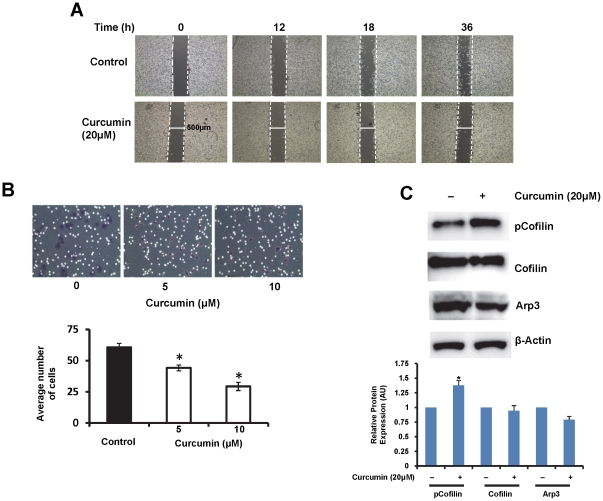Figure 7. Curcumin treatment inhibits cell motility through phosphorylation of cofilin.
A). Scratch assay. C4-2 cells were grown, until confluent, in plates containing IBIDI inserts. The inserts were removed from the plates to generate gaps (solid white lines show width of the gap; dashed lines border the gap) and phase contrast images of the same area of the gaps were taken at varying time intervals in the presence or absence of 20 µM curcumin. Curcumin treatment inhibited motility of C4-2 prostate cancer cells. B). Boyden's chamber assay. Equal numbers of C4-2 cells were seeded on the Boyden's chambers and incubated in the presence DMSO or curcumin (20 µM) for 24 h. Migrated cells were fixed, stained, counted and graphed. Curcumin inhibited motility of C4-2 cells. Mean ± SE; n = 3; *p<0.05. C). Effect of curcumin on the expression of actin remodeling proteins. Total cell lysates prepared from curcumin (20 µM) or DMSO treated C4-2 cells were processed for immunoblotting using specific antibodies. The densitometric quantitation of protein bands normalized to β-actin level is shown in graph. Curcumin treatment induced a marked increase in the expression of inactive phospho-cofilin compared to DMSO treated control cells. Minor change was also observed in the expression of Arp3. AU- arbitrary units.

